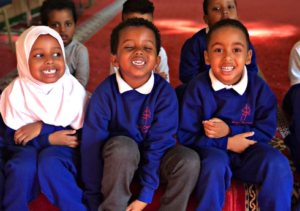At Shakhsiyah School we value each child as an individual created by Allah. We spend time getting to know them while paying attention to their individual educational needs. Our principle of Taqdīr underpins all areas of assessment. We believe learning cannot be standardised and children should not be tested and graded. Assessments that help children and teachers reflectively evaluate their learning are the most important tool in supporting progress. Our teachers possess an in-depth understanding of how children’s shakhsiyah and learning mature and develop over time, assessing and supporting students to master new skills through a carefully planned curriculum.
At Shakhsiyah, we place a strong emphasis on ongoing formative assessment as the cornerstone of mapping your child’s progress. This dialogic approach to assessment allows us to tailor our teaching methods to meet the individual needs of each child. It ensures that we provide a nurturing and responsive learning environment that fosters not only academic growth but also the emotional and social development of every child.
Teachers work with children to record their achievements and development through producing their “Learning Journey” records. They provide regular narrative evaluations to parents and collaborate with parents through parent-teacher conferences. They celebrate children’s learning and development through displays, certificates and awards and most importantly through one-to-one encouragement and praise. They help children to recognise that it is their responsibility to develop and learn and that this is their purpose as a human being; thus giving them the gift of a strong Islamic attitude to life which will surpass any material qualification that they may gain in the future.






Teachers work with children to record their achievements and development through producing their “Learning Journey” records. They provide regular narrative evaluations to parents and collaborate with parents through parent-teacher conferences. They celebrate children’s learning and development through displays, certificates and awards and most importantly through one-to-one encouragement and praise. They help children to recognise that it is their responsibility to develop and learn and that this is their purpose as a human being; thus giving them the gift of a strong Islamic attitude to life which will surpass any material qualification that they may gain in the future.



Parents are given feedback of their child’s progress at the end of each term through teacher-parent meetings where they are able to peruse their child’s learning journey. This is also an opportunity for teachers to learn more from parents about the shakhsiyah and needs of each child under their care. Children discuss termly targets with their teachers and receive targets cards to help them focus their efforts. Parents receive an annual report with detailed narrative evaluations of children’s progress.





Parents are given feedback of their child’s progress at the end of each term through teacher-parent meetings where they are able to peruse their child’s learning journey. This is also an opportunity for teachers to learn more from parents about the shakhsiyah and needs of each child under their care. Children discuss termly targets with their teachers and receive targets cards to help them focus their efforts. Parents receive an annual report with detailed narrative evaluations of children’s progress.


